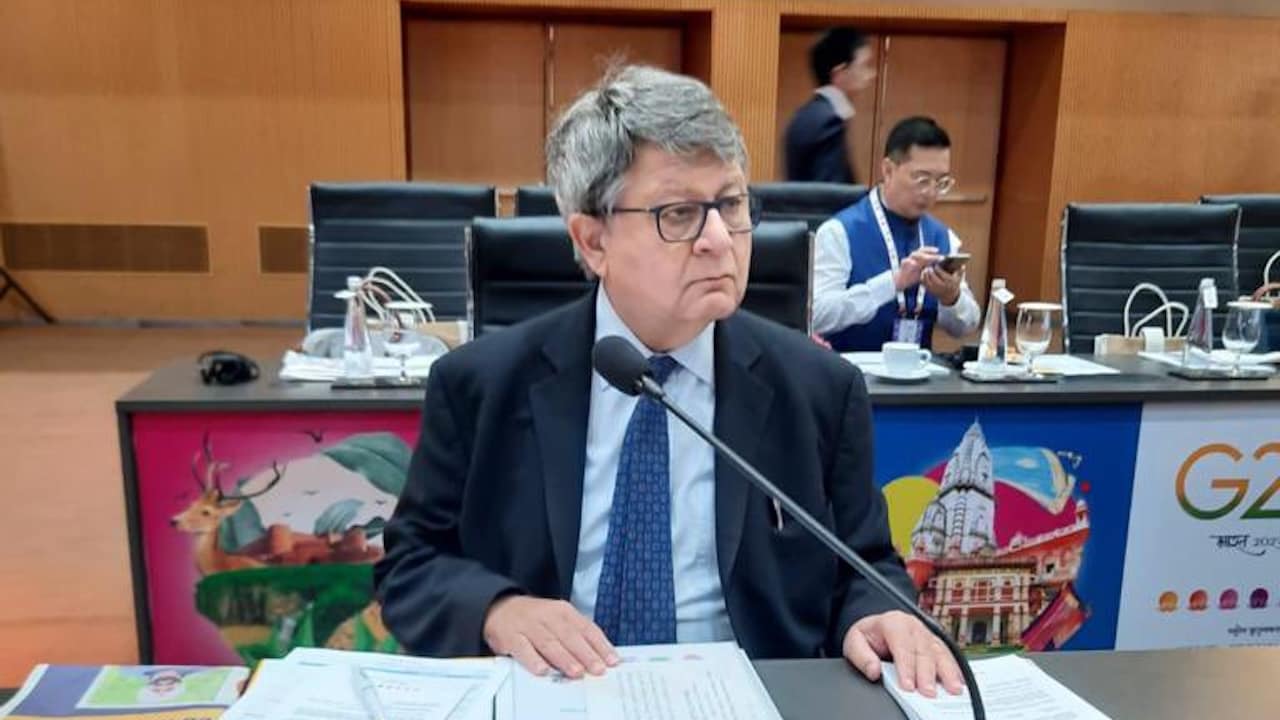

Bery described the role of AI as a “huge tailwind” in India’s progress but was quick to temper expectations, stressing that no single technology can be the foundation for the future of humankind. He said, “…the Prime Minister believes that in the journey to Viksit Bharat, technology — particularly AI — is a huge tailwind and not a headwind. But the productivity of one-fifth of mankind cannot be yoked to just one technology.”
Bery said India needs a multi-faceted approach to development, where AI is seen as a powerful enabler rather than a sole solution.
According to Bery, one of the most significant opportunities AI presents is its ability to harness India’s diversity as a strength. He illustrated how AI could overcome one of the country’s biggest challenges—language barriers.
“AI makes India’s diversity a strength by eliminating language as a barrier,” he said. “It permits customised solutions, literally to everybody, by eliminating language as a barrier—whether written or spoken. Smartphones and other digital platforms [have become] much more powerful as delivery mechanisms.”
This capability, he noted, could revolutionise service delivery across sectors, enabling inclusive growth and bridging access gaps in areas such as education, healthcare, and governance.
Also read: India among the countries most concerned about robots taking jobs
Bery identified three critical areas where AI could deliver transformative outcomes:
Agriculture
With 40% of India’s population engaged in agriculture, Bery said the sector has enormous potential for improvement through AI. He explained, “Certainly, using AI for customising agricultural advice is an important area that’s being thought about because the old extension model can now be replaced by something much more customised. We are in an era of climate change, and the question of how and how quickly people can respond to climate change will also be facilitated by this.”
He said improving agricultural productivity, where India lags significantly behind the global frontier, is a critical priority.
Health
Bery pointed to the Digital Health Mission as an example of how AI is already being leveraged to improve health outcomes. He stated, “The fact of the matter is that we now will have the database to get people to focus on our diseases in our context, rather than being dependent on, as it were, the priorities of the West. AI allows us to address issues like non-communicable diseases and even local air pollution by providing data-driven insights and solutions.”
Education
In the education sector, Bery said AI has the potential to create personalised learning experiences and address gaps in access and quality. However, he stressed that reliable data and standardised protocols are essential for AI models to function effectively.
Bery acknowledged that while the central government plays a leadership role in setting the AI agenda, the real work lies with state governments. “None of this is in the lap of the central government,” he explained. “Almost all of it will involve working with the states. The capacity of the states is, as you know, very varied. NITI Aayog will try and lead, try and coax. We are attempting to replace the power of the purse [with] the power of persuasion and ideas.”
This decentralised approach reflects the reality of India’s governance structure, where states are key players in implementing development initiatives.
Preparing for the Future
Bery also addressed the challenges posed by AI-driven technological disruption, particularly in the context of jobs. While acknowledging the potential for job displacement in certain sectors, he emphasised the importance of skilling and continuous learning to prepare India’s workforce for the future.
“The pace of change in an AI world is going to be faster,” he said. “To my mind, what that creates is a huge need for continuous learning. In the US, community colleges give you an opportunity to upgrade your skills throughout your life. We need to start thinking about inevitable obsolescence and ensure our workforce is equipped for evolving livelihoods.”
He pointed to Prime Minister Narendra Modi’s focus on startups and entrepreneurship as a way to reimagine the future of work in India.
The Road Ahead
Bery identified reliable data and standardised protocols as critical enablers for AI applications and stressed the importance of collaboration between the central and state governments.
“AI is only a part of the challenges stimulated by technological change,” he said. “The journey to Viksit Bharat will require us to harness AI’s potential while preparing for the rapid pace of change it brings.”
Also read: India positioned to lead in AI governance amid global shifts, say experts



